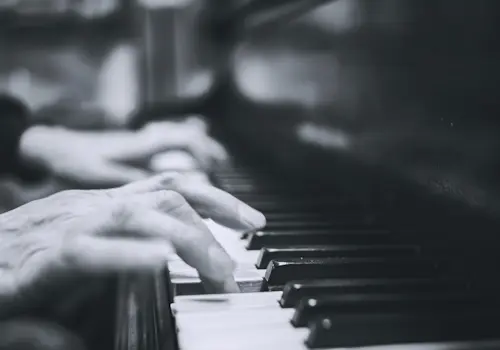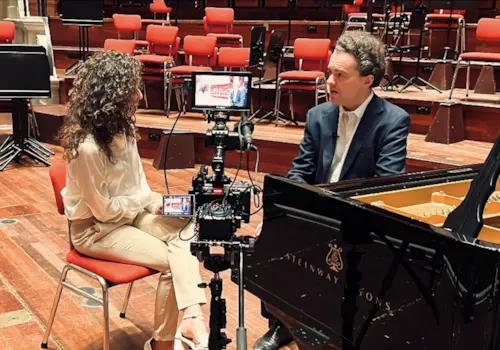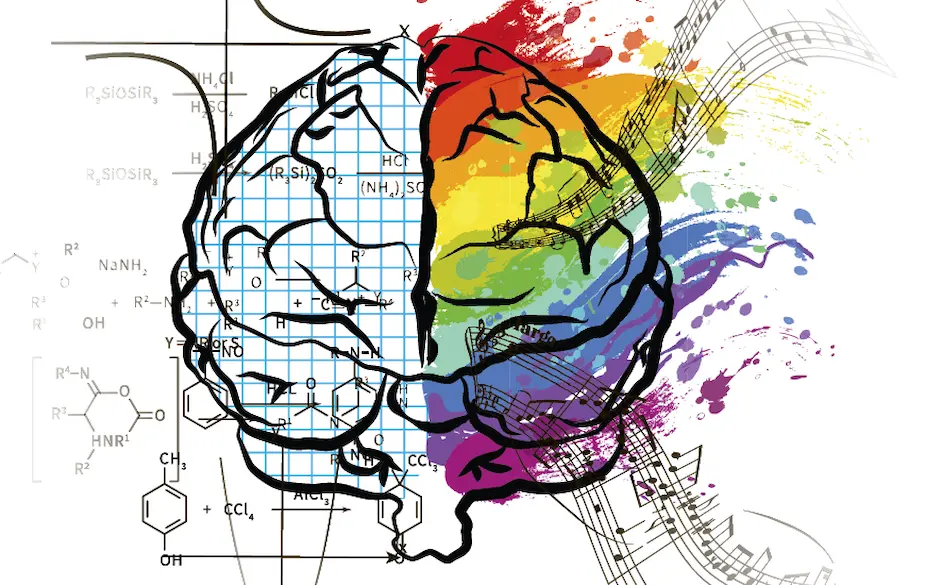John Evans talks to the experts about a much-discussed subject – that playing the piano, or indeed any instrument, is good for your wellbeing
Each year, on 10 October, the World Health Organisation recognises World Mental Health Day.
According to the Adult Psychiatric Morbidity Survey, conducted in 2014 by the UK’s National Health Service, one in six people in the past week experienced a common mental health problem. But what is mental health? According to the WHO, mental health is a dynamic, ever-changing state. Depending on our circumstances we may feel down, stressed or anxious one day but fine the next.
By ‘fine’ the organisation means being in a state of mind that allows us to make the most of our potential, deal with the ups and downs of daily life and play a full part in family, community and social life.
It means being able to learn, to express and manage positive and negative emotions, to form and maintain relationships through thick and thin, and to manage and deal with change and uncertainty. According to the APMS, among those people suffering mental health problems, one in ten experience anxiety or depression – symptoms usually described as neurotic. Less common symptoms, described as psychotic, affect a person’s perception of reality and may be accompanied by hallucinations.
Of course, mental health is a deeply personal issue that can take many forms. Even so, one expert has a simple strategy for managing it that will come as no surprise to readers of Pianist.
‘We know that playing a musical instrument is a creative skill that can help people suffering with problems including depression, anxiety-based disorders, trauma and grief,’ says Dave Smithson, operations director of Anxiety UK, a mental health charity. ‘It’s what we call a mindful activity which, because it requires a lot of our attention, helps to take our minds off the thoughts and feelings that clog our brains. ‘These thoughts and feelings are just that; they’re not facts. We have a notice in our office that says, ‘What if – so what?’ It refers to the fact that often, any anxiety we feel is caused by the fact we worry about things over which we have little control.’

According to Smithson, playing the piano allows us to rid ourselves of these negative thoughts by allowing us to process and channel them. ‘The great thing is, playing the piano or doing any mindful activity that demands our attention, is not just a temporary fix. For many sufferers whose condition is receptive to it, it can bring long-term benefits – but only so long as they continue with the activity.’
Further findings
Smithson’s remarks are supported by a study undertaken by researchers in Finland and Norway in 2011 which found that music therapy can improve the treatment of depression. Patients were invited to play a range of percussion instruments during a three-month trial period.
At its conclusion, those patients receiving music therapy plus standard care showed a significantly greater improvement in their symptoms than those receiving standard care alone. However, three months after the trial ceased, both groups recorded similar results. Writing in the British Journal of Psychiatry, Michael Crawford, a psychiatrist, explains why music therapy helps people suffering with depression. ‘Listening and creating music allows individuals to express themselves in non-verbal ways. The interplay of melody, harmony, and rhythm stimulates the senses and promotes calmness. Musical engagement boosts levels of the hormone dopamine.’ In short, music makes us feel better.

Chris O’Sullivan, Head of Business Development and Engagement at the Mental Health Foundation, London, adds: ‘Whilst we can’t say conclusively that playing an instrument is helpful for people with depression, or can protect and improve our mental health more generally, there is certainly reason to believe that it could. Being absorbed in a creative activity that uses our skills may help to distract us, relax us and lift us emotionally. Playing may also provide ways to explore emotions through music, and may help to reconnect us to things with meaning in our lives.
‘It’s important to say that for some people, the experience of depression may include feeling unable to concentrate on playing, or lead to harsh self-criticism. If that’s the case for you, then remember that when the fog lifts, your joy in music will return. Checking in once in a while and playing even for a short time, may help. For those of us looking for a hobby or skill that will keep our minds sharp and give us an outlet to express ourselves, playing an instrument can be a worthwhile hobby – presenting an opportunity to be social with others, or creative in private.’
A pianist’s story

Concert pianist Clare Hammond
Clare Hammond, a concert pianist who in 2016 was awarded the Royal Philharmonic Society’s Young Artist award, suffers depression but has found salvation performing music to people beyond the concert hall. ‘As performers we have to be extremely focused, even as young children before we embark on a career,’ she says. ‘The profession is very competitive and you have to develop a high level of skill. I thrived on these demands but found this self-centred frame of mind increasingly challenging to deal with.’ Ironically, it was discovering music’s power to connect people that transformed her outlook and set Clare on the path to recovery.
‘I cannot explain what is happening cognitively but experientially, I began to understand the communicative aspect that lies at the core of music. This profoundly impacted both my recovery and, subsequently, my artistic development. ‘I started to perform in prisons and saw the radical effect that classical music can have on people in difficult circumstances, even if they have no prior experience of the genre. Music offers us a chance to escape, inspires hope and fosters strength. Through seeing its power to affect the mental health of others, I began to understand the value of my own work.’ For all musicians and pianists who may be suffering with depression, Clare offers some words of encouragement. ‘Although it can feel utterly overwhelming at the time, we learn so much about ourselves and the human condition from adverse experience. Know that others have been there before you and found a way through. Play or listen to music that tells that story and know this will not last forever.’
This article is taken from issue 116 of Pianist. Download the issue here.
If you or someone you know are affected by the issues raised in this story, you may find the following services
helpful:
- The NHS publishes an extensive A-Z of UK-based mental health charities that may be of help: www.nhs.uk
- Anxiety UK provides therapy services to help combat this debilitating condition: anxietyuk.org.uk
- Musicians are three times more likely to suffer anxiety or depression. Discover how you can help them at: helpmusicians.org.uk







